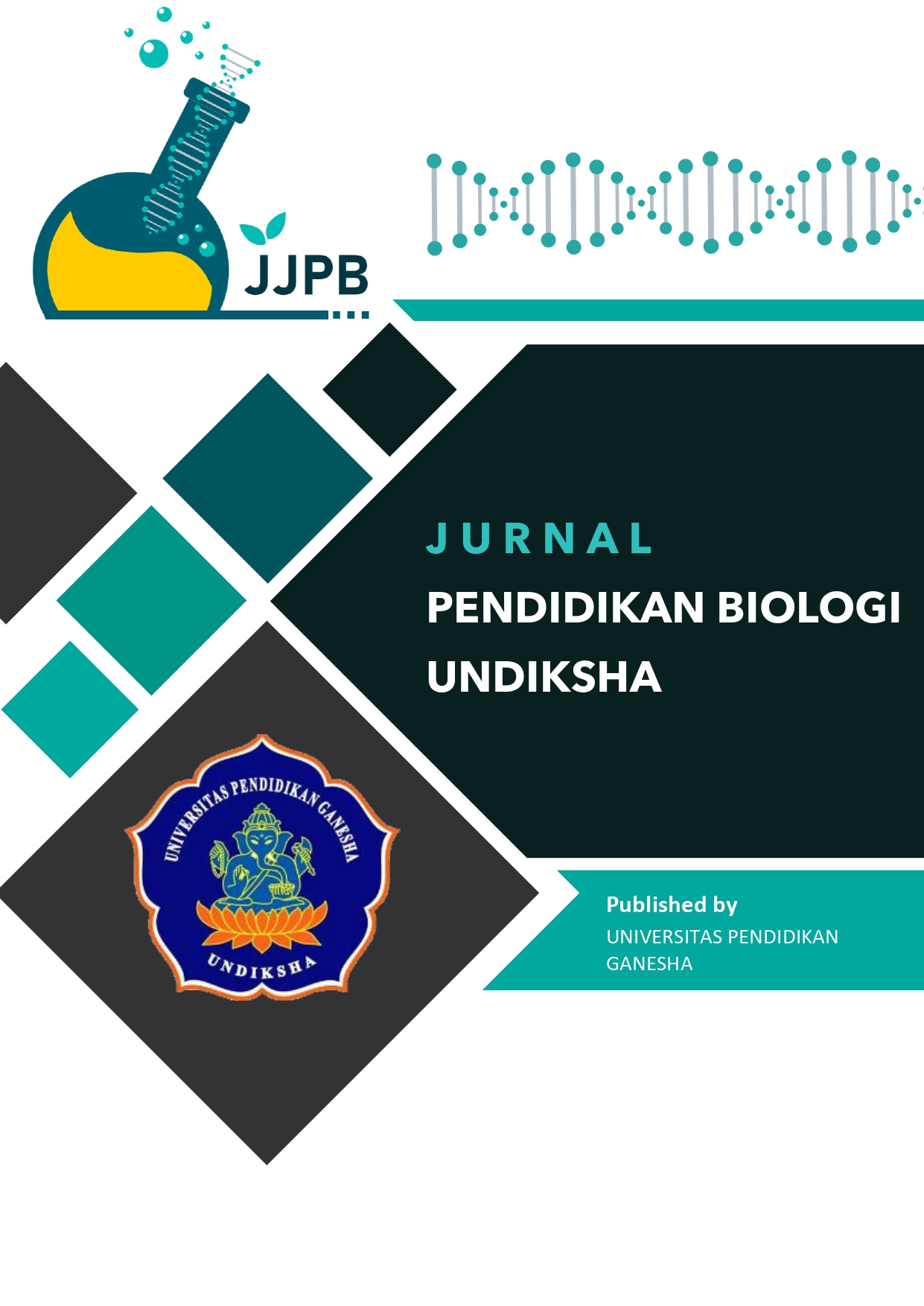Analisis Kendala Peserta Didik Dalam Pembelajaran Biologi Pada Masa Transisi (Daring Ke Luring) Di SMA Negeri Se-Kabupaten Toraja Utara
DOI:
https://doi.org/10.23887/jjpb.v10i3.69130Keywords:
student constraints, learning biology, the transition periodAbstract
This research aims to determine the obstacles faced by students in learning biology during the transition period in North Toraja Regency State High Schools. This research was conducted in the even semester of the 2022/2023 academic year. This type of research is quantitative descriptive research by distributing questionnaires related to the obstacles faced by students during biology learning during the transition period (online to offline). The population in this study was 2152 students in classes X and XI Science consisting of 10 high schools in North Toraja Regency. The sampling technique was carried out using cluster sampling based on regional divisions so that 4 schools were obtained representing each regional division. Determining the minimum sample size uses the Slovin formula to obtain results of 300 samples. The results of the analysis show that students' obstacles in learning biology during the transition period (online to offline) reached a percentage of 50% in the moderately constrained category.
References
Ekantini, A., Sunan, U., Yogyakarta, K., & Hayati, N. (2020). Efektivitas Pembelajaran Daring pada Mata Pelajaran IPA di Masa Pandemi Covid-19: Studi Komparasi Pembelajaran Luring dan Daring pada Mata Pelajaran IPA SMP. E-Learning Yang Efektif. Bali: Jurusan Ilmu Pendidikan …, 5(2), 187–194.
Fatkul Jannah, Wirawan Fadly, & Aristiawan, A. (2021). Analisis Karakter Rasa Ingin Tahu Siswa Pada Tema Struktur dan Fungsi Tumbuhan. Jurnal Tadris IPA Indonesia, 1(1), 1–16. https://doi.org/10.21154/jtii.v1i1.63
Harefa, M., Lase, N. K., & Zega, N. A. (2022). Deskripsi Minat Dan Motivasi Belajar Siswa Pada Pembelajaran Biologi. Educativo: Jurnal Pendidikan, 1(2), 381–389. https://doi.org/10.56248/educativo.v1i2.65
Hasmara, P. S., & Dwi, C. D. N. (2022). Perbedaan Minat Belajar Siswa Mata Pelajaran PJOK saat Pembelajaran Daring dan Luring. Sprinter : Jurnal Ilmu Olahraga, 3(1), 16–24.
Jauharoti, A., Fatin, A., Ningrum, A., Ummah, K., Moh. Anshori, Juhaeni, J., Safaruddin, S., & Hasmiati. (2022). Dampak Transisi Pembelajaran Jarak Jauh (PJJ) ke Pembelajaran Tatap Muka Terbatas (PTMT) Terhadap Hasil Belajar Tematik Peserta Didik Madrasah Ibtidaiyah. Jurnal Inovasi Penelitian Dan Pengabdian Masyarakat, 2(1), 24–40. https://doi.org/10.53621/jippmas.v2i1.79
Mashrul, N. N. R., & Permana, H. (2022). Pembentukan Karakter Siswa Melalui Lingkungan Keluarga Di Rumah. Nusantara: Jurnal Ilmu Pengetahuan Sosial, 9(2), 868–877.
Mustiko, A. B., & Trisnawati, N. (2021). Pengaruh Keterampilan Mengajar Guru, Kesiapan Belajar Dan Motivasi Sebagai Variabel Intervening Terhadap Hasil Belajar Siswa. Journal of Office Administration : Education and Practice, 1(1), 42–52. https://doi.org/10.26740/joaep.v1n1.p42-52
Nursyamsiah, & Fatah, V. F. (2022). Jurnal Keperawatan. 14, 565–572.
Ratnadi, N. K. S. (2018). Metode diskusi kelompok kecil untuk meningkatkan prestasi belajar IPA siswa. Jurnal Pendidikan Dan Pembelajaran IPA Indonesia, 8(3), 156–164. http://ejournal-pasca.undiksha.ac.id/index.php/jurnal_ipa/index%0AMETODE
Suparyanto dan Rosad (2020). Pembelajaran daring dan luring. Jurnal pendidikan. Vol. 5, Issue 3).
Wu, Z., & McGoogan, J. M. (2020). Characteristics of and Important Lessons from the Coronavirus Disease 2019 (COVID-19) Outbreak in China: Summary of a Report of 72314 Cases from the Chinese Center for Disease Control and Prevention. JAMA - Journal of the American Medical Association, 323(13), 1239–1242. https://doi.org/10.1001/jama.2020.2648
Yusuf, M., & Arfiansyah, W. (2021). Konsep “Merdeka Belajar” dalam Pandangan Filsafat Konstruktivisme. AL-MURABBI: Jurnal Studi Kependidikan Dan Keislaman, 7(2), 120–133. https://doi.org/10.53627/jam.v7i2.3996
Downloads
Published
Issue
Section
License
Copyright (c) 2024 Ajeng Klarica Todingan, Fatmah, Dian Dwi Putri Ulan Sari Patongai, Abd. Muis

This work is licensed under a Creative Commons Attribution-ShareAlike 4.0 International License.







